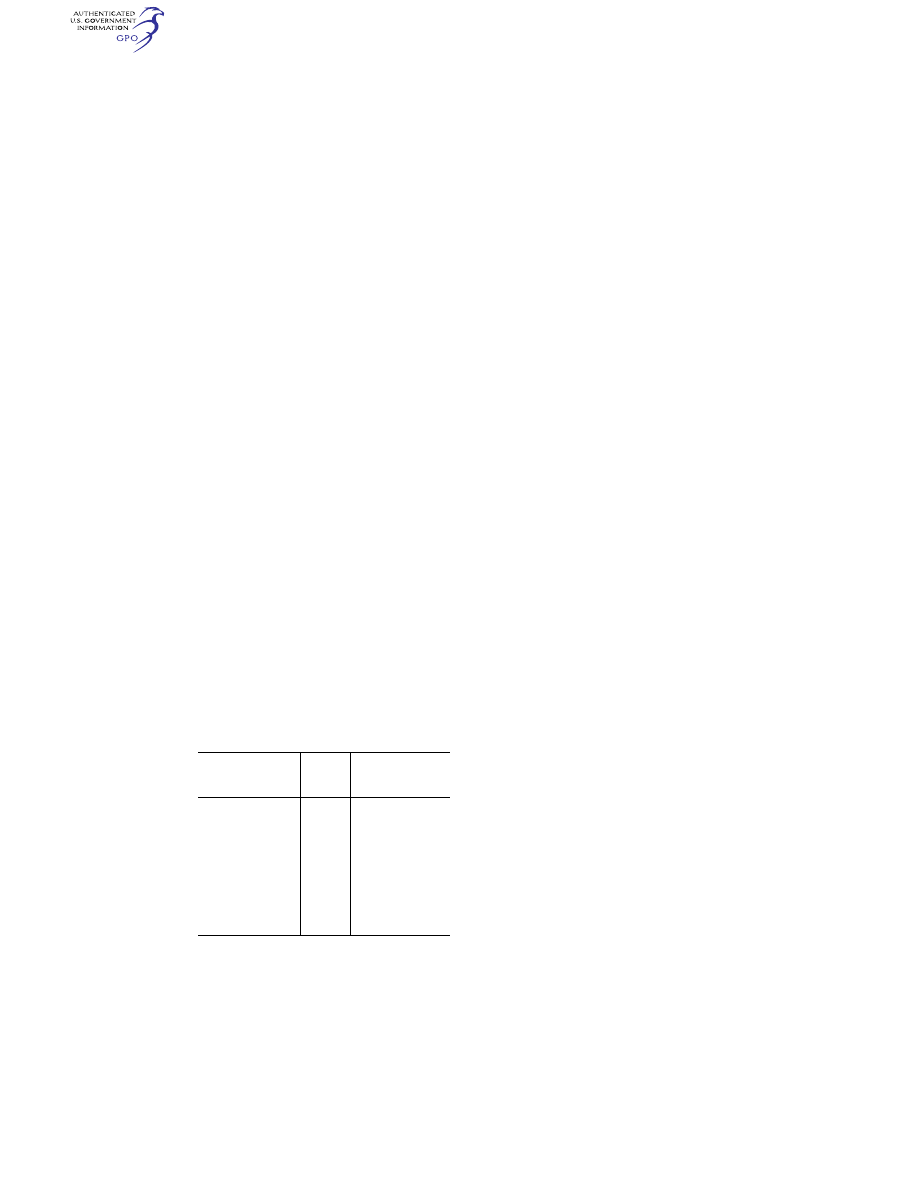
897
Federal Aviation Administration, DOT
§ 105.23
authorization or gives notice of the
parachute operation.
(7) The registration number of the
aircraft to be used.
(8) The name of the air traffic control
facility with jurisdiction of the air-
space at the first intended exit altitude
to be used for the parachute operation.
(b) Each holder of a certificate of au-
thorization issued under §§ 105.21(b) and
105.25(b) of this part must present that
certificate for inspection upon the re-
quest of the Administrator or any Fed-
eral, State, or local official.
(c) Each person requesting an author-
ization under §§ 105.21(b) and 105.25(a)(2)
of this part and each person submitting
a notice under § 105.25(a)(3) of this part
must promptly notify the air traffic
control facility having jurisdiction
over the affected airspace if the pro-
posed or scheduled parachute operation
is canceled or postponed.
§ 105.17
Flight visibility and clearance
from cloud requirements.
No person may conduct a parachute
operation, and no pilot in command of
an aircraft may allow a parachute op-
eration to be conducted from that air-
craft—
(a) Into or through a cloud, or
(b) When the flight visibility or the
distance from any cloud is less than
that prescribed in the following table:
Altitude
Flight vis-
ibility
(statute
miles)
Distance from clouds
1,200 feet or less
above the surface re-
gardless of the MSL
altitude.
3 500 feet below, 1,000
feet above, 2,000
feet horizontal.
More than 1,200 feet
above the surface
but less than 10,000
feet MSL.
3 500 feet below, 1,000
feet above, 2,000
feet horizontal.
More than 1,200 feet
above the surface
and at or above
10,000 feet MSL.
5 1,000 feet below, 1,000
feet above, 1 mile
horizontal.
§ 105.19
Parachute operations between
sunset and sunrise.
(a) No person may conduct a para-
chute operation, and no pilot in com-
mand of an aircraft may allow a person
to conduct a parachute operation from
an aircraft between sunset and sunrise,
unless the person or object descending
from the aircraft displays a light that
is visible for at least 3 statute miles.
(b) The light required by paragraph
(a) of this section must be displayed
from the time that the person or object
is under a properly functioning open
parachute until that person or object
reaches the surface.
§ 105.21
Parachute operations over or
into a congested area or an open-air
assembly of persons.
(a) No person may conduct a para-
chute operation, and no pilot in com-
mand of an aircraft may allow a para-
chute operation to be conducted from
that aircraft, over or into a congested
area of a city, town, or settlement, or
an open-air assembly of persons unless
a certificate of authorization for that
parachute operation has been issued
under this section. However, a para-
chutist may drift over a congested area
or an open-air assembly of persons with
a fully deployed and properly func-
tioning parachute if that parachutist is
at a sufficient altitude to avoid cre-
ating a hazard to persons or property
on the surface.
(b) An application for a certificate of
authorization issued under this section
must—
(1) Be made in the form and manner
prescribed by the Administrator, and
(2) Contain the information required
in § 105.15(a) of this part.
(c) Each holder of, and each person
named as a participant in a certificate
of authorization issued under this sec-
tion must comply with all require-
ments contained in the certificate of
authorization.
(d) Each holder of a certificate of au-
thorization issued under this section
must present that certificate for in-
spection upon the request of the Ad-
ministrator, or any Federal, State, or
local official.
§ 105.23
Parachute operations over or
onto airports.
No person may conduct a parachute
operation, and no pilot in command of
an aircraft may allow a parachute op-
eration to be conducted from that air-
craft, over or onto any airport unless—
(a) For airports with an operating
control tower:
VerDate Sep<11>2014
14:00 Mar 14, 2024
Jkt 262047
PO 00000
Frm 00907
Fmt 8010
Sfmt 8010
Q:\14\14V2.TXT
PC31
aworley on LAPBH6H6L3 with DISTILLER
